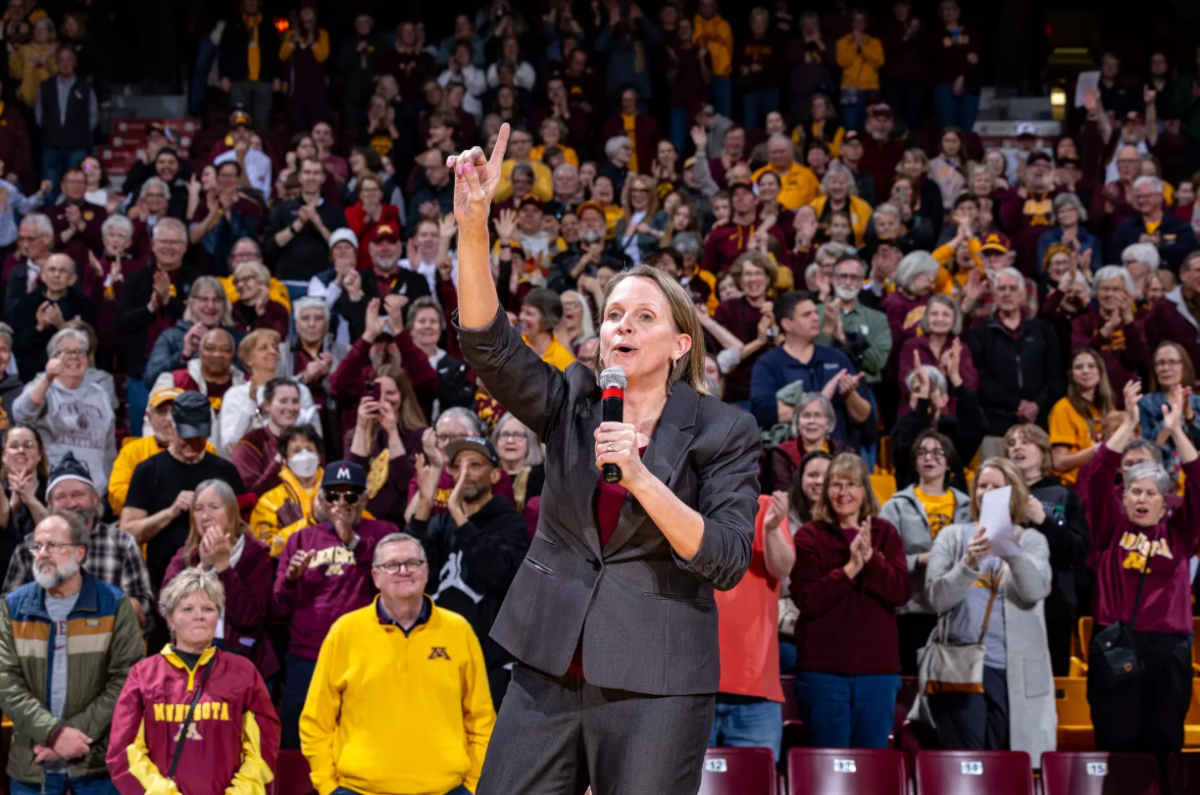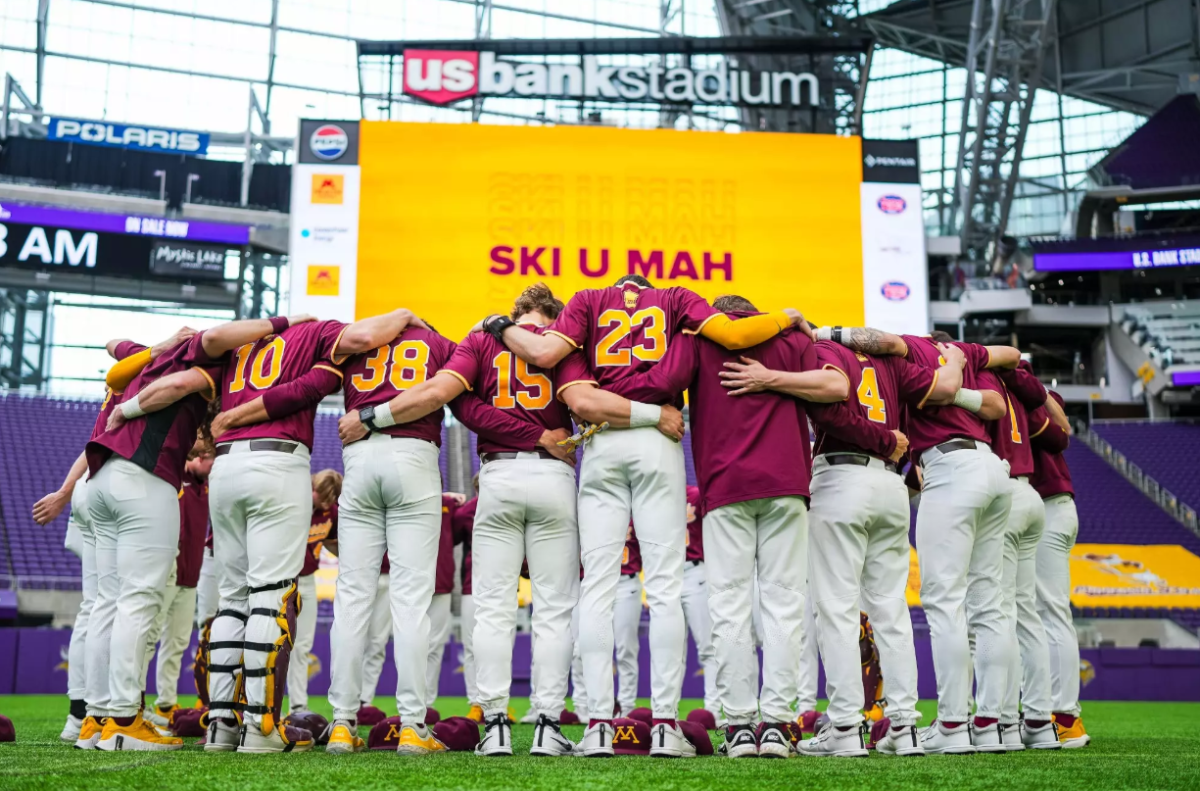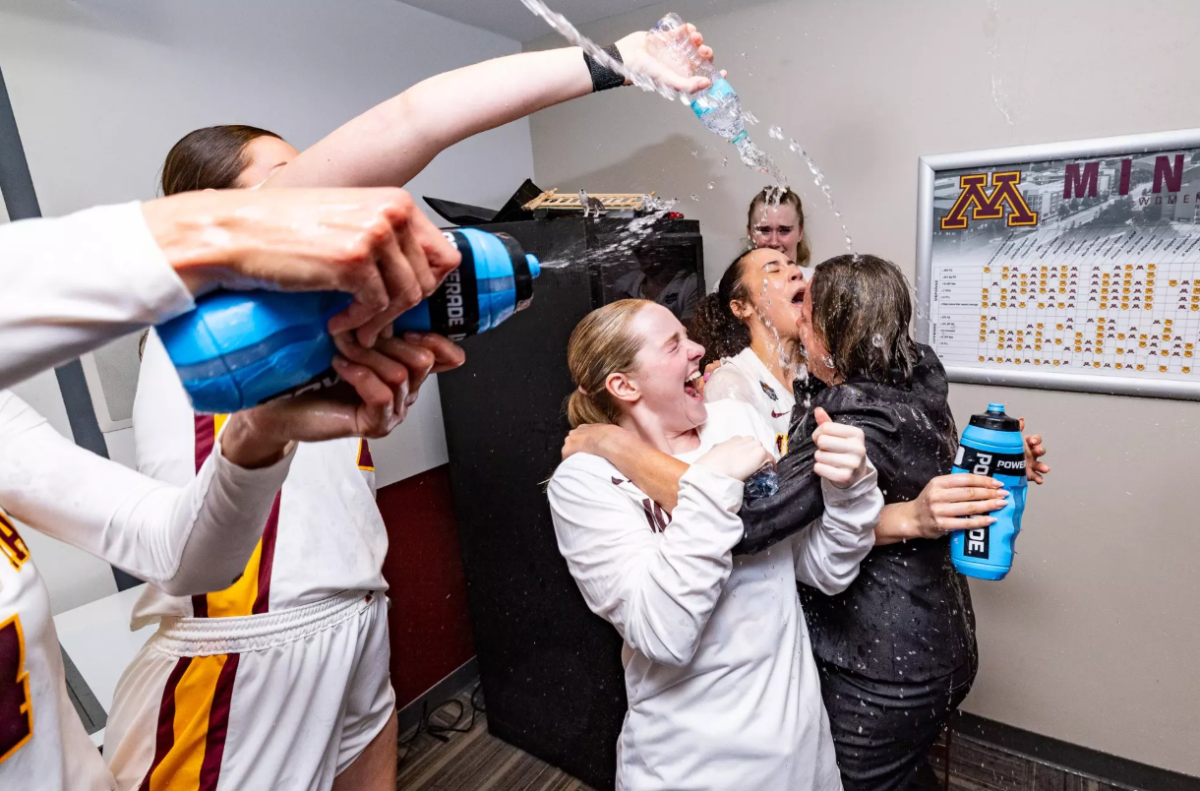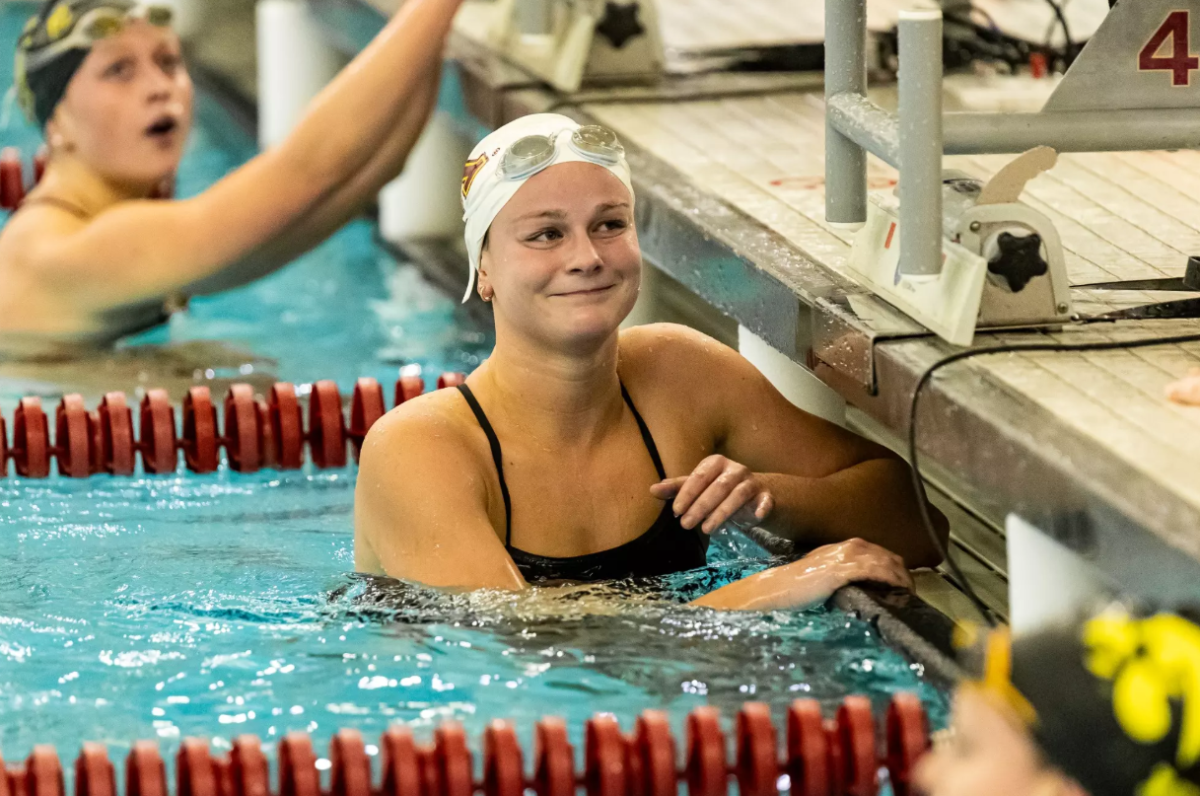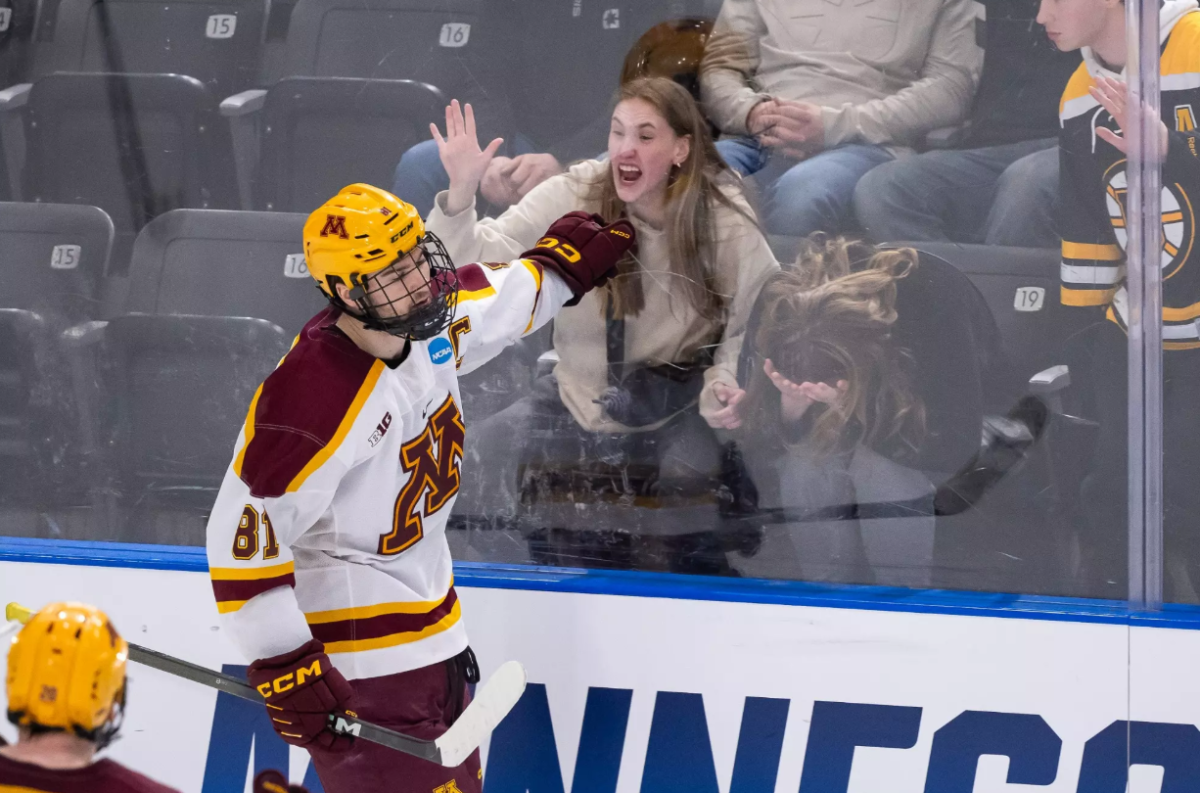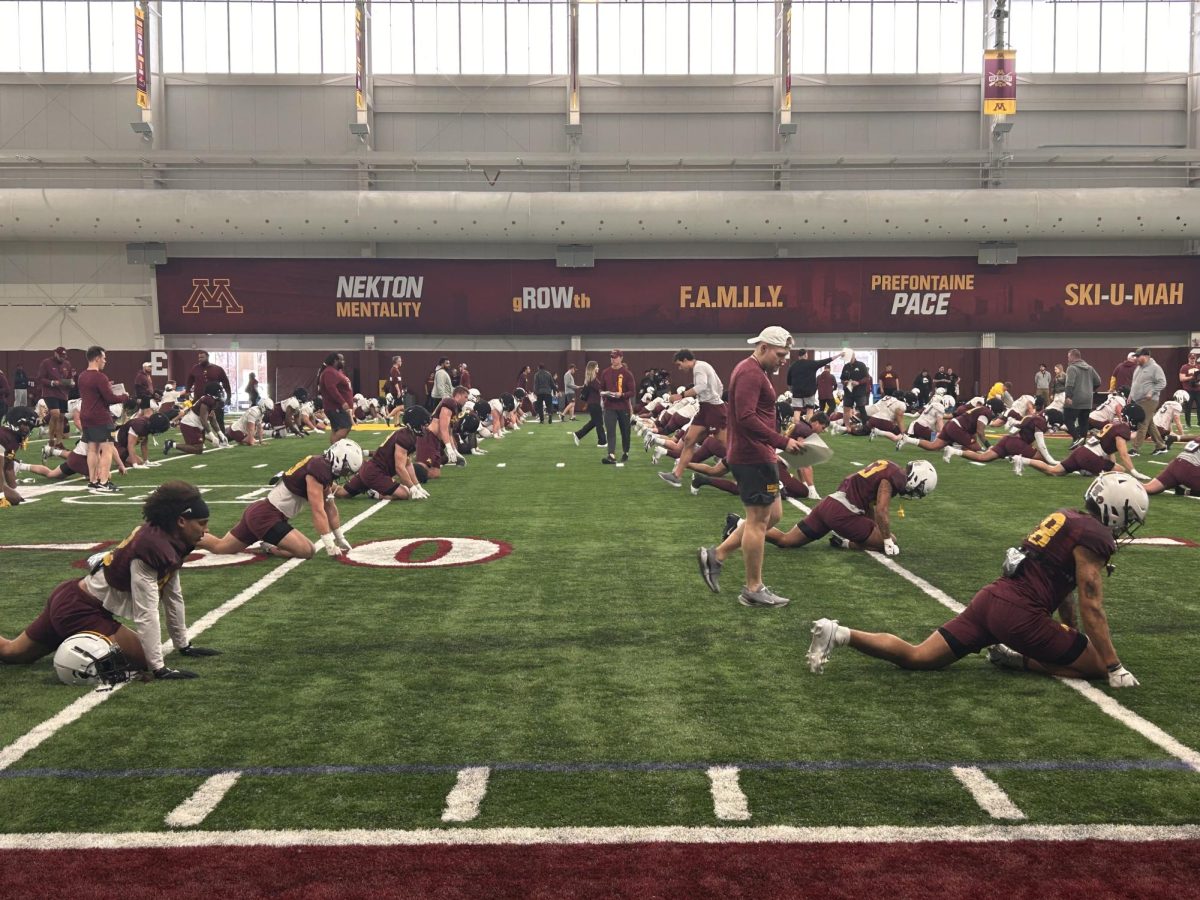Joe Russell will be the first to tell you he’s been a Gopher for a long time.
Currently an assistant coach with the Minnesota wrestling team, Russell hails from Gresham, Ore. The town rebuilt its high school during the 1930s and renamed themselves the Gophers in honor of the Minnesota football team, which at the time was in the midst of national prominence.
After his high school days, he ventured east and competed at Minnesota before becoming a coach.
Though Russell no doubt loves his favorite mascot, the road he took to Minnesota was an unexpected and extremely long one.
A 1985 motorcycle accident shortly before his senior year at Gresham left him hospitalized for months and partially paralyzed on the left side of his body. He was alive, but for all intents and purposes, the same could not be said for a once-promising wrestling career.
“The toughest thing was not being able to wrestle like I used to,” Russell said. “I gripe and complain about things, but I know how fortunate I am.”
‘I wasn’t supposed to live’
It looked like another typical August day in Gresham. Joe and his older brother, Dan, had just finished a midday run and were on their way to the high school for wrestling practice. A new season was on the horizon and Joe was looking to defend his two state titles and build on his 90-1 prep record. He had only lost as a freshman, in the state semifinals.
Though the boys’ house was mere blocks from the school, they both opted to ride to practice.
Joe hopped on the back of a friend’s motorcycle while Dan followed behind them in a car. In a matter of seconds, the simple trek they had made hundreds of times turned ugly.
A truck pulled out in front of the bike from behind some low-hanging tree branches near the school parking lot. An effort to lay the bike down by Joe’s friend instead flipped the cycle. The end result was horrifying; the bike’s foot peg had jammed three inches into Russell’s skull.
“It’s a sight I will never forget,” said Dan, who today resides about a block from the accident site. “I look out the window every day and can see the exact spot. You never get over it.”
According to Joe, the police report states that officials on the scene scooped one-third of a cup of his brain matter from the pavement. He was rushed to the hospital and his parents were told to expect the worst.
“I wasn’t supposed to live,” Russell said. “There are pieces of my skull still stuck in there that the doctors couldn’t get to. My parents had all the papers signed for donating my organs, but I just hung in there and hung in there.”
Russell lay in a drug-induced coma for
nearly three weeks. On occasion he would come to, biting at the tubes down his throat helping him breathe.
“I remember thinking it was a weird dream,” he recalled. “The nurses were telling me to knock it off, but I was like, ‘Whatever, this is a dream.’
“But then I realized how much it hurt. Could you hurt in a dream?”
Eventually, the breathing tubes came out, but the chances of Russell walking or talking again were minimal. Already defeating the odds – doctors would tell Russell later the longest they had seen anyone survive his type of injuries was 30 minutes – Russell surprised everyone when he woke up shivering and spoke to the nurse.
He was cold.
“She freaked out,” Russell said. “Then I told her I was hungry. She tried to explain to me about the accident and that it would be a long time before I could swallow on my own. I looked at her and said, ‘Ma’am, I’m a wrestler, and we love to eat. I will never forget how to swallow.’ “
That kind of determination would be vital in the months and years to come.
Someone to believe in
Russell’s injuries forced him to lie in a supine position for nearly a month. The trauma on the right side of his head had forced the entire left side of his body to go numb. He had no recollection of the accident, nor the few days before it.
And the first time he sat up afterward was anything but memorable.
“It was like a circus ride,” he said. “The bed kept going up and up and then I puked all over. I hadn’t had a head rush like that in a while.”
Russell’s post-trauma aptitude test results were equal to what he’d scored in high school, but his physical output wasn’t quite as successful.
He went from benching 275 pounds in the weight room to a four-ounce stick to regain movement. After months of grueling physical therapy, he finally was able to walk and recalls his first attempt at running the mile.
“I thought I was flying,” Russell said. “I was falling and all bloody, people were walking past me while I ran. When I finished, it had been over 20 minutes but I didn’t care.”
He attended two classes in the spring of 1986 but ultimately had to attend a fifth year of high school. His quality of wrestling dropped off, and his mailbox, once chock-full of college suitors, went dormant. Soon, the phones stopped ringing.
But he kept training.
“His competitiveness was just amazing,” high school coach Masa Miyake said. “He was so dedicated despite his paralysis. He never lost his passion for the sport.”
Through it all, Minnesota stayed interested. Coach J Robinson happened to be in Oregon at the time of Russell’s accident and wrote him a note of encouragement.
“I needed someone to believe in me,” Russell said.
Robinson, who had seen Russell wrestle at Junior Nationals only months before, never changed his mind about bringing Joe to Minnesota on a partial scholarship
“He was dealt some bad cards,” Robinson said. “I knew how good he was and decided to give him an opportunity. Whether you’re a father or a coach, whatever, everyone deserves a chance.
“He’s one of the most inspirational persons I’ve been around.”
Moving on
To say Russell had the most memorable wrestling tenure at Minnesota would be a stretch. Though he was voted team captain his last two seasons, he was a career backup, never winning a varsity match. But he was always out to better himself and was convinced sooner or later he would return to full form.
Every night, Russell would tell himself the next day he’d be better. When he’d wake up and still stumble around, he didn’t get frustrated. He made a pact to improve.
He’d keep wrestling logs of all the teammates who beat him, hoping one day to get revenge. One who made a habit of tossing him around was future fellow assistant coach Marty Morgan.
“It was a little weird,” Morgan said. “He was one of the guys I looked up to most wrestling in high school. I was way behind the level he was at in high school.”
Though he still can’t move his left ankle side to side, can only curl two toes on the foot and his entire left side “feels a little different,” Russell has put the past behind him and moved on.
He recently married Sadie Miles. After graduating from Minnesota, he moved on to law school and passed the state bar exam. He practices primarily in sports-related issues, such as assisting with the pro contract of current WWE and former Minnesota heavyweight Brock Lesnar.
When it all comes down to it, however, his heart and mind belong to wrestling.
Despite personifying staples of wrestling such as determination and sacrifice, Russell isn’t a drill instructor. His credentials – both on the mat and off – would surely allow him to be. Instead, Russell sticks to the mental side of coaching.
“My personality is probably too lenient and too understanding with people,” he said. “But I went from great things to coming out here and being the backup. That helps because we’ve got guys here who have been on the top and we’ve got big dreamers.”
It’s rare to see Russell sitting during a match. He constantly stays on his feet, shouting techniques to Gophers wrestlers.
Funny to think at one point, no one thought those simple tasks would ever be possible for him to do again.
No one, that is, except Russell.
Brian Stensaas covers wrestling and welcomes comments at bstensaas@mndaily.com


